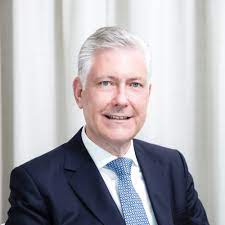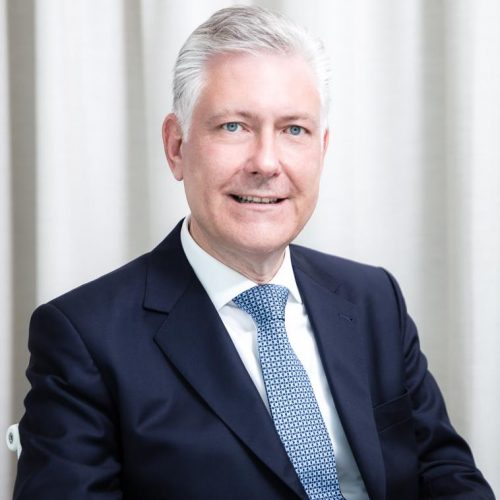Novartis Reaches Milestone, Delivers 1 Billion Courses of Antimalaria Treatment
Global pharmaceutical giant Novartis has delivered 1 billion courses of antimalarial treatment, including 430 million pediatric treatments, largely at no profit since 1999; With other innovations, the Novartis artemisinin-based combination therapy (ACT) contributed to reduce malaria deaths by nearly half over the same timeframe; Novartis continues to invest in research and development for next-generation antimalarials to combat the threat of artemisinin resistance.

Novartis announced today that it has delivered one billion courses of antimalarial treatment since 1999. More than 90% of this artemisinin-based combination therapy (ACT) was supplied without profit to malaria-endemic countries around the globe.
Read also:Novartis Launches Medicines for Symptomatic Treatment of COVID-19
ACTs are the standard of care for the treatment of P. falciparum malaria, the most deadly form of the disease, responsible for over 99% of cases in Africa and half of cases in Asia [2]. Since the turn of the century, ACTs have transformed malaria treatment and contributed to the dramatic reduction in malaria deaths.
Working with Chinese partners, Novartis launched the first fixed-dose ACT (artemether-lumefantrine) in 1999. Artemisinin is a natural compound found in the plant Artemisia annua, or sweet wormwood, and has shown to clear malaria parasites in the blood. ACTs combine an artemisinin derivative with a partner drug to reduce the risk of resistance if artemisinin is given alone.
Adoption of ACTs as first-line treatment by the World Health Organization (WHO) has been critical to the global malaria response. Since 2000, the WHO estimates that 1.5 billion malaria cases have been averted and 7.6 million lives saved.1 Along with malaria prevention tools and better diagnostics, ACTs remain a key component of the global drive to reach malaria elimination.
Read also:MTN Nigeria Poised for Fintech Leadership
In 2001, two years after the launch of its ACT, Novartis signed an agreement with the WHO, committing to make the antimalarial available without profit to the public sector of malaria-endemic countries. Although the agreement expired in 2011, Novartis continues to provide treatments on the same terms as before.
“This is a landmark moment in the fight against malaria. Over the last 20 years, Novartis has delivered one billion treatments in more than 70 countries,” said Dr. Lutz Hegemann, Group Head, Corporate Affairs and Global Health, Novartis. “We could not have achieved this milestone without the support of our global partners and those we work with on the ground in endemic countries.”
Children bear a significant burden of malaria disease and death. This led Novartis and Medicines for Malaria Venture (MMV) to partner on the development of the first dispersible ACT formulated specifically for children. Of the 1 billion treatments delivered, more than 430 million are the pediatric formulation launched in 2009. This pediatric treatment has contributed to a significant reduction in malaria deaths in children: in 2010, a child died every 30 seconds from malaria and now it is estimated that a child dies every two minutes. Although this is a massive improvement, there is still a long way to go.
Read also:Why South African Businesses Adopted Hybrid Cloud at Increasing Rate In 2020
Novartis continues to spearhead the use of ACTs to treat malaria. The company is now testing a new ACT formulation for infants weighing less than five kilograms in collaboration with the PAMAfrica research consortium led by MMV. This is one of the most vulnerable groups affected by malaria, for whom there is currently no approved treatment.
Over the last few years, worrying signs have been observed of emerging drug resistance to ACTs in South East Asia, and more recently in Africa. If widespread resistance to ACTs occurs, particularly in Africa, new effective treatments will be urgently needed. In 2018, Novartis committed to invest more than USD 100 million over five years to further advance research and development of next-generation treatments.
Novartis currently leads five malaria development programs worldwide, featuring three compounds that employ new mechanisms of action and activity against artemisinin-resistant strains of the disease.
KAF156 (ganaplacide) belongs to a novel class of antimalarial compounds that act against both the blood and liver stages of the parasite’s lifecycle. It demonstrated activity against both P. vivax and P. falciparum malaria, including artemisinin-resistant parasites. Novartis leads the development of this compound with scientific and financial support from MMV and from EDCTP via the WANECAM2 Consortium.
KAE609 (cipargamin) is another novel antimalarial compound demonstrating rapid clearance of parasites pre-clinically and in patients. Novartis is leading the development of KAE609 with financial support from the Wellcome Trust and in collaboration with the PAMAFRICA Consortium supported by EDCTP and led by MMV.
Read also:South African e-Health Startup, Link, Secures $350k Funding Round
In 2020, the company discovered another novel malaria compound, INE963, which has an entirely new mechanism of action which will begin clinical trials in 2021. INE963 is a fast-acting, long-lasting antimalarial that holds promise for a high barrier to resistance. It was discovered with support from MMV and received the organization’s “Project of the Year” award in 2020.
Kelechi Deca

Kelechi Deca has over two decades of media experience, he has traveled to over 77 countries reporting on multilateral development institutions, international business, trade, travels, culture, and diplomacy. He is also a petrol head with in-depth knowledge of automobiles and the auto industry






